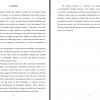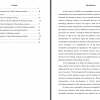Тема: Global development of the Sharing economy
Закажите новую по вашим требованиям
Представленный материал является образцом учебного исследования, примером структуры и содержания учебного исследования по заявленной теме. Размещён исключительно в информационных и ознакомительных целях.
Workspay.ru оказывает информационные услуги по сбору, обработке и структурированию материалов в соответствии с требованиями заказчика.
Размещение материала не означает публикацию произведения впервые и не предполагает передачу исключительных авторских прав третьим лицам.
Материал не предназначен для дословной сдачи в образовательные организации и требует самостоятельной переработки с соблюдением законодательства Российской Федерации об авторском праве и принципов академической добросовестности.
Авторские права на исходные материалы принадлежат их законным правообладателям. В случае возникновения вопросов, связанных с размещённым материалом, просим направить обращение через форму обратной связи.
📋 Содержание
Chapterl Overview of the development of China's sharing economy 6
1.1 Sharing economy overview 6
1.2 Analysis of characteristics of sharing economy 10
Chapter 2 Disadvantages and risks in the development of sharing economy 16
2.1 Risks and problems in the development of the sharing economy 27
2.2 Development status and existing problems of China's sharing economy ... 32
Chapter 3 Sharing economy development status and model analysis 43
3.1 Market development analysis of sharing economy 44
3.2 Market development analysis of shared knowledge and skills 48
Conclusion 54
Reference List 58
📖 Введение
At the beginning of its birth, the sharing economy emphasized the circulation of a large number of idle resources. When this concept evolved into a real business model, it emphasized the use of resources rather than ownership, and fully improved the utilization rate of resources. The development of the sharing economy was proposed in the 13th Five- Year Plan, and the sharing economy and the business form it represents have officially become the strategic planning at the national level. Through analyzing theadvantages and characteristics of the development of China's sharing economy, it analyzes the development prospects of the sharing economy in the future.
In recent years, sustainable economic development has become a hot topic. First, in the previous literature, both energy efficiency and the role of the sharing economy in sustainable economic development were studied. This study complements the previous 3
literature on energy efficiency and the sharing economy while analyzing sustainable economic development. Secondly, previous studies have analyzed the role of sharing economy on sustainable economic development as a whole. There are almost no literature articles discussing the dimensions of the sharing economy, such as sharing economy users or sharing economy value, to determine the sustainable development of the economy. This study fills this literary gap. Third, China has long been the largest emitter of greenhouse gases, but studies have only identified it as an obstacle to achieving sustainable economic development.
The development of sharing economy has promoted the exchange between different industries, strengthened the communication between different staff, and then promoted the constant change of economic system, caused a certain impact on the traditional economic system of our country, and brought severe challenges and opportunities for the development of enterprises. The main content of the sharing economy is the exchange of various items between enterprises and individuals, and the formation of a professional economic system related to human resources materials through the establishment of corresponding platforms. The development of sharing economy can make the limited resources more efficient use, make the allocation of resources more reasonable, and promote the development of related economies.
The research object set in this paper is the type mode of sharing economy. Through the study of the development process of the two modes of sharing economy, constructive suggestions are put forward for the corresponding management decisions. Making management decisions is the analysis and evaluation of the global development process of the sharing economy to determine the state of the economic system, Forecast the development trend of the sharing economy in the world; Planning strategies for the global development of the sharing economy; The organization that regulates the development of the sharing economy around the world.
Research methods
(1) Literature research methods
Through various economics-related websites and other ways to consult the literature on the global development of sharing economy, to understand the development of this 4
field in recent years, and to lay the theoretical foundation for the paper by summarizing and sorting out the literature.
(2) Theory and practice
In order to truly understand the development situation of sharing economy, we can query and statistics all kinds of relevant data, sort out the data, and obtain the data Pass the experience material. Read a variety of relevant literature, use theory to analyze specific practical problems, analyze the reasons, Put forward the corresponding problems to solve the countermeasure. The research is carried out by combining theory with practice.
(3) Analysis and synthesis
Based on the sorting out of the status quo, characteristics and problems of the development of sharing economy, this paper decomposes the development of sharing economy into a series of specific problems from point to point, analyzes the causes of each, and puts forward corresponding solutions from the overall perspective based on the analysis conclusions, so as to preliminarily complete the research tasks.
This paper combines the theory of economic development with the development of sharing economy, and probes into the influence of the development of sharing economy on economic development from the Angle of literature. Sharing economy in the global development process is a dynamic change, reflected in its welfare effect, economic stability, security conditions. This paper studies the two basic modes of sharing economy, highlighting the research object of sharing economy. The development of sharing economy is a topic that keeps pace with The Times. The research on it should not be limited to a certain period, but should be devoted to its long-term development.
✅ Заключение
The rapid development and application of mobile Internet technology, the popularity of smart phones, the popularity of third-party payment, the support of national policies, the inflow of venture capital, and the improvement of consumption concepts have enabled China's sharing economy to profoundly influence consumers and promote economic development from scratch and from small to large.
In short, the rise of the sharing economy is based on three cornerstones: information symmetry, rules of the game, and collaboration. Information symmetry refers to the reduction of information asymmetry, which will have a positive impact on resource aggregation, resource allocation, supply and demand connection, user experience and main body coordination; Rules of the game refers to the design of rules that have an important impact on calling for the public to participate in the sharing economy. Fair, transparent and mutually beneficial rules are the basis for the development of sharing economy. Collaboration refers to the establishment of information platforms, which should be considered more from the perspective of participants, giving participants more dependence and participation, collaborative information sharing and collaborative innovation.
The sharing economy is a relatively new phenomenon designed to promote environmentally friendly practices. The sharing economy is characterized by the convergence of information, marketing, and technology, creating a new paradigm in which customers value access over ownership, enabling them to make better use of resources. It provides a modern business strategy that can pave the way for energy efficiency and sustainable economic development. However, the economic and environmental impacts of the sharing economy are still controversial and more research is needed. In fact, the sharing economy upends current economic standards, raising concerns about the pros and cons of new behaviors.





